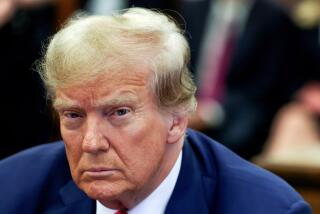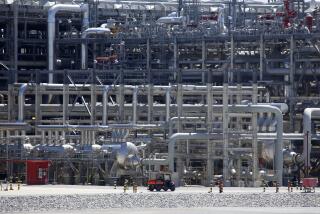Energy Policies and Gulf War
- Share via
The President’s State of the Union message promised yet another comprehensive “national energy policy.” A national energy policy involves complex and interlocking political, economic and technical factors--issues that involve enormous economic and human costs. For example, the causes of our involvement in the current war in the Persian Gulf are many. One of them is tragic failure of U.S. energy policy. The lesson that we seem doomed to relearn periodically is the danger of a major dependence on imported energy from a single region rather than from multiple sources of supply.
Examples of alternative energy policies abound--from mandated conservation measures to major incentives favoring particular forms of transportation or energy generation. There are many ways to improve energy utilization. A simplistic expedient would be to legislate the replacement of incandescent lights by fluorescent lights. However, the most important element of a national energy policy in our view is to increase the cost of imported fuels. An increase would:
* Reduce consumption with all of the associated environmental benefits.
* Provide incentives for investment in alternative sources of supply and modes of transportation.
* Provide a source of government revenue which we recommend should be invested in additional energy research and development.
The historic U.S. policy of trying to maintain gasoline as an inexpensive commodity while legislating piecemeal fuel economy and environmental protection has been ineffective. Now is the time for the Administration and Congress to demonstrate the courage to make fundamental changes in U.S. energy policy--changes that will ensure that the staggering cost of the Gulf War and the lives lost will not have been in vain.
JOHN D. BALDESCHWIELER
Professor of Chemistry, Caltech
RICHARD N. ZARE
Professor of Chemistry, Stanford
More to Read
Sign up for Essential California
The most important California stories and recommendations in your inbox every morning.
You may occasionally receive promotional content from the Los Angeles Times.










